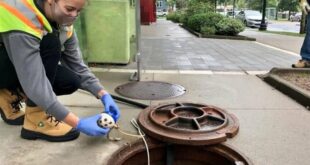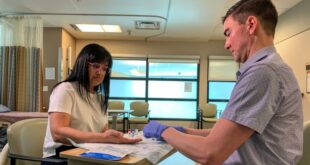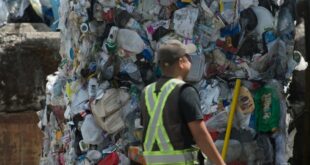Scientists say no cause for concern over imminent rupture; up to 200 small earthquakes per hour recorded
An eruption of magma under the Pacific Ocean floor far off Vancouver Island will be so hot the water will fizz — but only scientists will notice.
Scientists with Ocean Networks Canada (ONC) are predicting an eruption is coming anywhere from a few weeks to a few years from now after they detected up to 200 small earthquakes per hour in the area last week.
"It's about 10 times as active as it normally is," said Jesse Hutchinson, a junior staff scientist with ONC.
"There were thousands of earthquakes detected within a day … more than 2000."
ONC says the expected rupture — about five kilometres deep and 260 kilometres off Tofino on the west coast of Vancouver Island — will be too distant and small to be cause for concern.
Hutchinson adds the quakes have ranged from negative to 4.1 magnitude, meaning only those close by would feel any shaking.
He says the activity taking place is a rare moment to study and learn about how the Earth's crust is formed.
"This is a unique opportunity to witness this [event], especially locally that … it happens maybe once or twice in a lifetime," he said.

Undersea volcano erupts in Pacific, forcing islanders of Tonga to rush to escape tsunami
2 years ago
An undersea volcano erupted near the Pacific nation of Tonga, sending tsunami waves crashing across the shore and people rushing to higher ground.
Martin Scherwath, a senior scientist with ONC — an ocean observation facility at the University of Victoria — said it will be the first chance for the phenomenon to be captured by the organization's underwater instruments.
The Neptune observatory has been collecting data from the site since equipment was first installed in 2009.
"So, this is the first time where a cable network observatory [has been] there all the time, and we actually have a chance to realize what's happening," Scherwath said.
Hutchinson says the last magmatic event took place from the 1990s to 2005, when scientists only had seismometers on the ocean floor to collect earthquake information.
This time, data will be collected in almost real time and include additional equipment to measure temperature changes, or any sound from lava breaching the sea floor.
Ocean Networks Canada says the observatory has seen increased earthquake activity in the area known as the Endeavour segment of the Juan de Fuca Ridge for years, but that peaked on March 6 when it recorded the highest level of earthquake activity in nearly two decades.
"What happened last week was just really outstanding in comparison [with] the gradual increase that we have seen," Scherwath said.
"So, there might have been a few a day on average, but 200 is an outstanding number."
Creating Earth's crust
Scherwath explained that the Earth's crust doesn't build slowly over time, but rather develops through the kind of bursts of cooled magma that are expected at the Juan de Fuca Ridge.
"There will be a major spreading event, and we want to know exactly how much is it spreading, how much new ocean crust it is generating, [and] how fast," he said.
The magma below the ocean floor is estimated to be about 800 C but will cool rapidly as it erupts and hits the water.
Scherwath said "almost fluid, runny rock" will come out of the sea floor, solidify and quickly turn black, while the heat causes the water around it to fizz.
He and fellow geophysicists will be watching to see how much of the Earth's crust is formed with one eruption, he said, while biologists will be most interested in how animals respond to any changes.
*****
Credit belongs to : www.cbc.ca
 MaharlikaNews | Canada Leading Online Filipino Newspaper Portal The No. 1 most engaged information website for Filipino – Canadian in Canada. MaharlikaNews.com received almost a quarter a million visitors in 2020.
MaharlikaNews | Canada Leading Online Filipino Newspaper Portal The No. 1 most engaged information website for Filipino – Canadian in Canada. MaharlikaNews.com received almost a quarter a million visitors in 2020.







